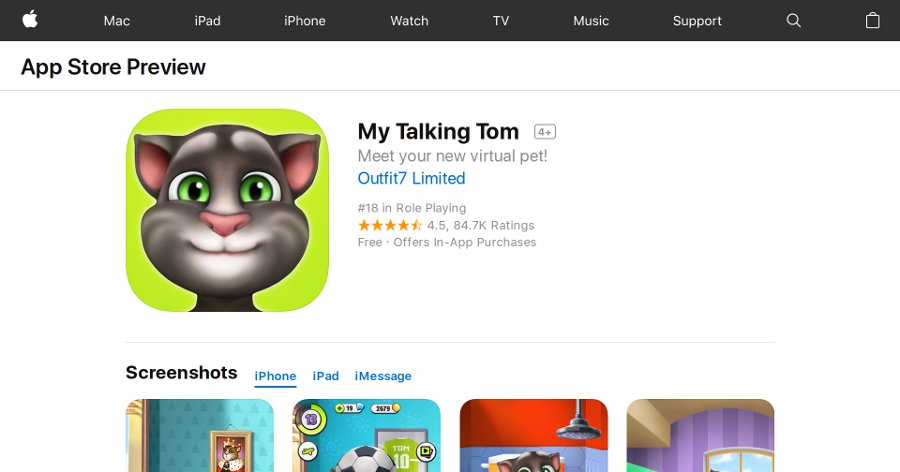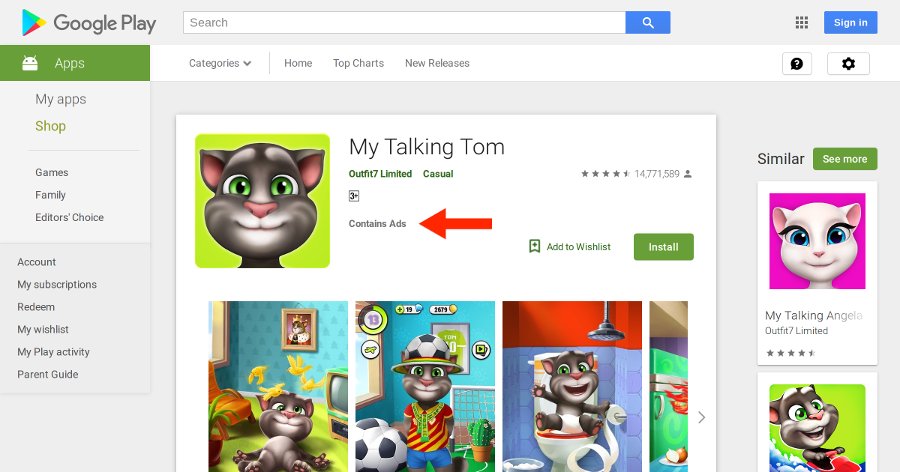Apple users have an adware problem. Specifically, Apple fails to label adware in their App Store, which means that iOS users are unable to make informed decisions when choosing apps. Even advertising giant Google gets this right, being transparent about the issue and clearly labelling apps in their competing Google Play Store.
As far as I can tell, the only way to determine whether an iOS app contains adware is to install it and check whether any ads are displayed. This is completely backwards. Although it’s not quite as stupid as poking at a snake “to see if it is alive”, it presumes users share that same mentality and lack the ability to plan ahead. I try to be a little smarter about these things and I require advance notice to guard against adware and protect device data from marketers.
Did you install an app and grant access to your contacts, before discovering it was sketchy and uninstalling? Too late, sorry. Apple should begin clearly labelling adware in their App Store so that users can use that information when making a decision about which apps to trust on their device.
If you carefully review all the information posted on an app’s listing, you might be lucky to spot a review mentioning ads. Some iOS apps offer in-app purchases and if you click the little arrow next to this disclosure, you might see a hidden drop-down menu with an ad-free version offered as a paid upgrade, but this is neither user-friendly nor reliable.

In the image above I have a screenshot of a popular app, which is available for both iOS and Android. This image is taken from Apple’s App Store and it shows some basic information about the app, including its popularity, overall user rating, and the text “Free · Offers In-App Purchases”. There is no mention of ads, until you scroll down a little more to the user reviews.
One very angry mom
At time of posting, one of the user reviews is titled “Do not download! Has porn ads!!!”“ and in it the user complains about ads depicting graphic sexual acts shown to her young child in an in-app ad. It gets even worse, the child’s mother searched online for more information and discovered this has been an issue since at least 2015, and Apple have failed to lift a finger or do anything to inform users about adware in apps.

Developers need income
Yeah, I understand servers cost money and app developers need to generate income. If you build an app you should be able to put ads in it. What you should not expect is for Apple to turn a blind eye and allow you to surprise users with ads.
Alternatively, you can charge users for the app and generate income that way instead, or sell an ongoing subscription if you need recurring income. This isn’t very complicated and I’m happy to pay for an app if I know it does not contain ads. However, it is not safe to assume purchased apps are ad-free.
Information and control
Android has what is effectively a per-app ‘firewall’, and Android users can go into the device settings and toggle network access for individual apps on and off. This does mean that some apps will break in unexpected ways, and may not even start. However it does give the user control and is a very effective way to manage apps that you only partially trust.
Without this same level of control on iOS, users are even more dependent on Apple to be transparent and give users information about apps. Hopefully this will change soon as this is not a difficult problem to solve. Apps are already carefully screened for malware and quality, and adding a simple check for ads (and displaying the results in the App Store) is all that is required.